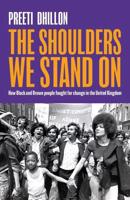Publisher's Synopsis
Homophobia is escalating alarmingly in some countries, whereas progress is being made in others. The author explores this phenomenon worldwide in terms of power and religion, which have always been related. England, half a century ago, was the most virulently homophobic of all developed countries, and yet neighboring Wales was gay friendly, where "don't ask, don't tell" prevailed. This difference is attributed to unintended consequences of major acts instigated by Henry VIII: the Act of Union in which Wales was annexed into England, and the Protestant Reformation in which he established the Church of England, separate from Rome and Catholicism, and set himself up as its head. Even though extreme homophobia was rampant in England, homosexuality was discretely acceptable among the upper classes and was even protected by the police, a polarization totally in keeping with the rigid English class system. It is suggested here that as a cover for that, members of the powerful English 'establishment' which emerged at the height of the British Empire in the late 19th century, generated an intense aura of homophobia and projected it onto the populace at large, a phenomenon known as false homophobia. For some of these, cultural life was made more tolerable by alignment with the Anglo-Catholic Church. False homophobia did not exist in Wales because, as a consequence of Henry VIII's two acts, the landed gentry had deserted Wales for England, leaving Wales a socially egalitarian country, a process that was complete by the end of World War II. The Act of Union forcibly integrated, administratively and legally, two countries having very different origins and cultures, and the Welsh landed gentry chose to become anglicized in both language and manner in order to gain access to the power and wealth of England. His Protestant Reformation added to that polarization, because the Welsh clerics aligned with the gentry and treated the Welsh language and culture with contempt; they were taught to preach in English to people who didn't understand English. It was the 16th century Puritans who first expressed dissatisfaction with the Reformation, and this developed into the rise of the Welsh non-conformist churches, led by the Methodist Revival. Late in the 19th century, when ordinary people were allowed to vote, the Welsh people rejected the gentry politically and elected the Liberal party under Prime Minister Gladstone, who proclaimed himself a man of the people, with the consequence that all of the major gentry eventually moved to England. Both England and Wales had evolved from the early Celts and four centuries of Roman occupation. But after the departure of the Romans, England and Wales developed in different directions. England was invaded by Germanic tribes, the Saxons, who obliterated its Celtic culture, imposed their own values and spoke a language which, comingled later with Norman French, developed into the polyglot English language. Wales avoided that fate and retained its identity and language. The Welsh are proud to be the true successors of the ancient British people and of their inheritance of the true pre-Saxon British language. That pride among the Welsh, pitted against the power of England, led to their uneasy relationship down through the centuries, which exists to this day. The author discusses his experiences with homophobia in the UK and the USA, both personal and as a scientist.










